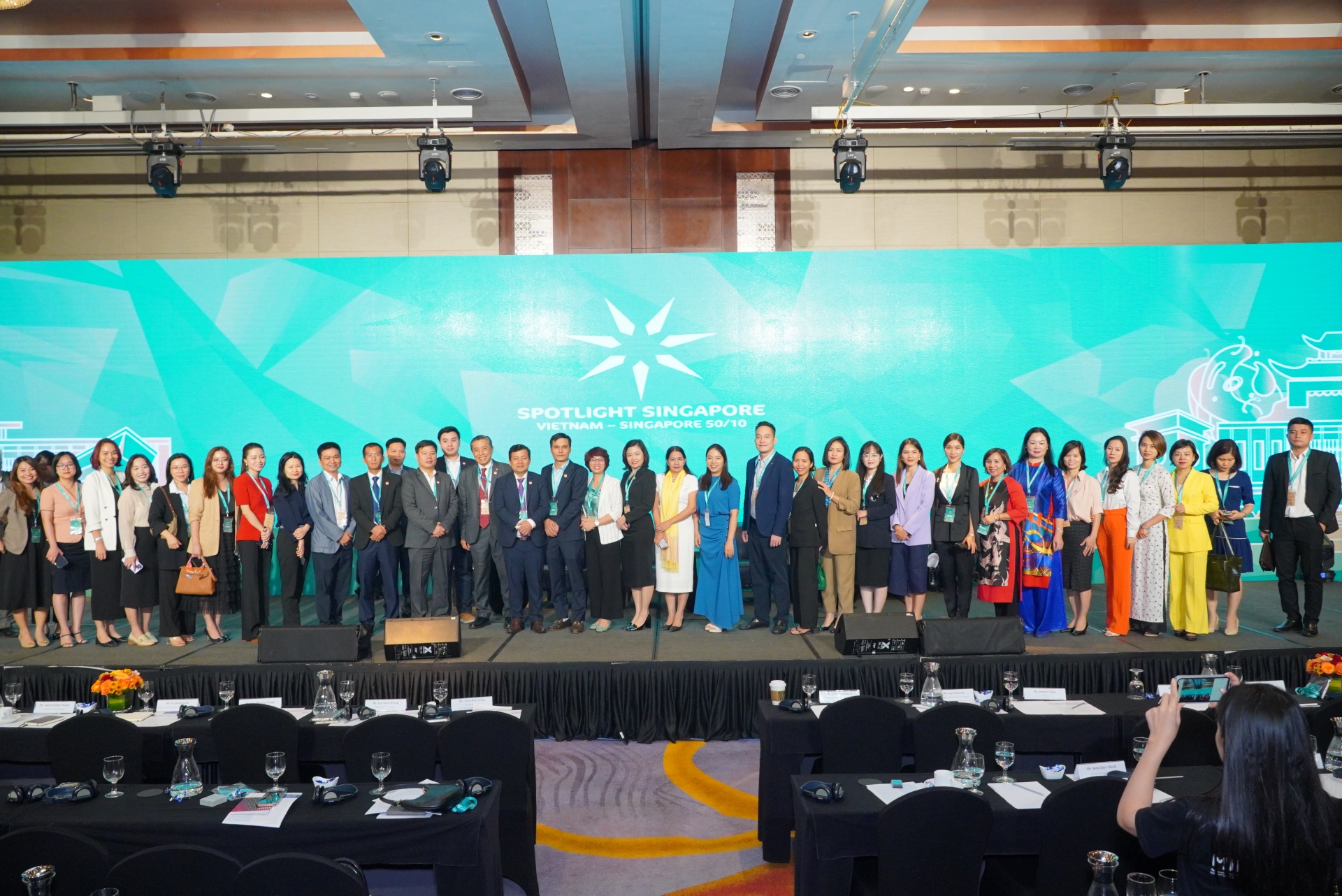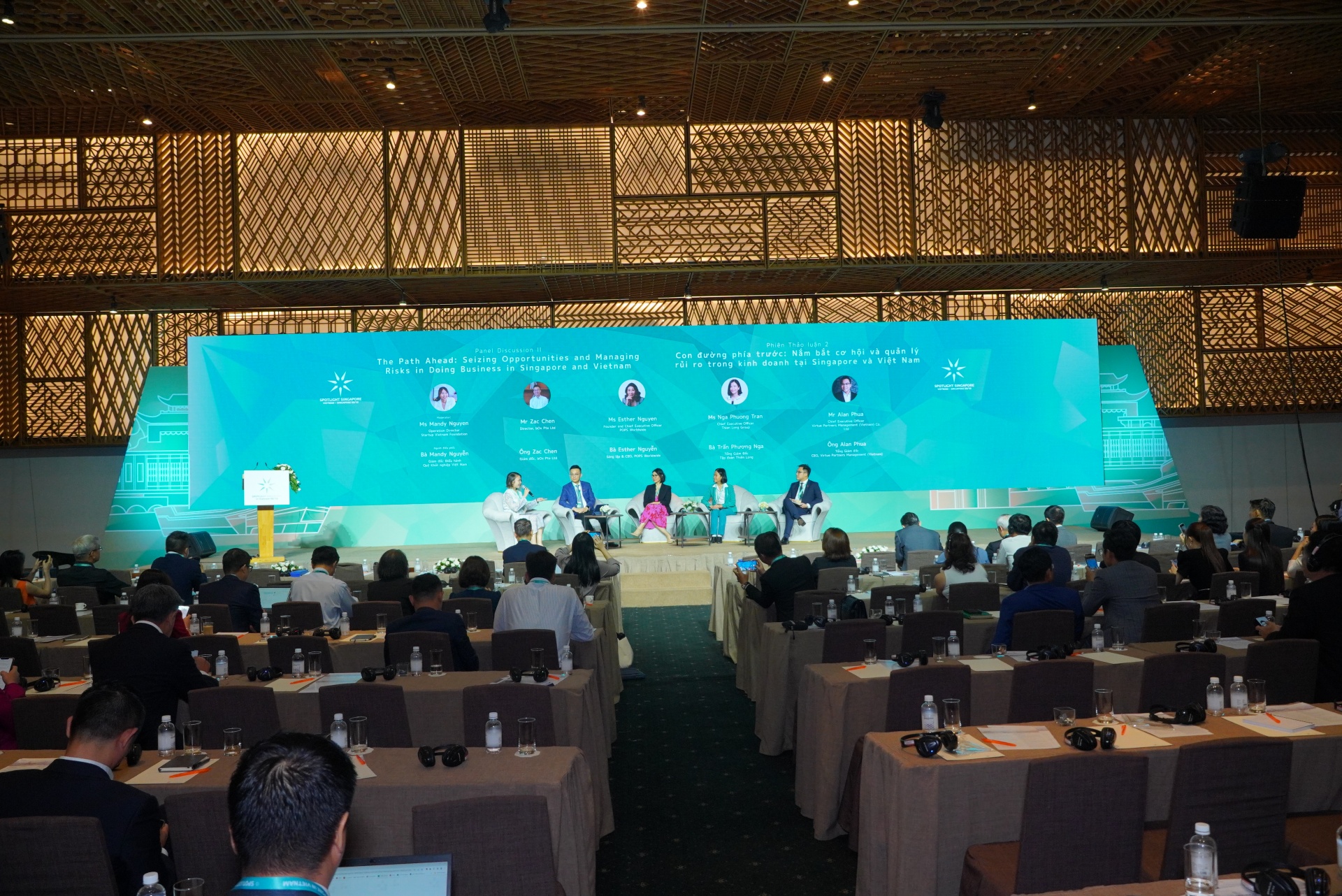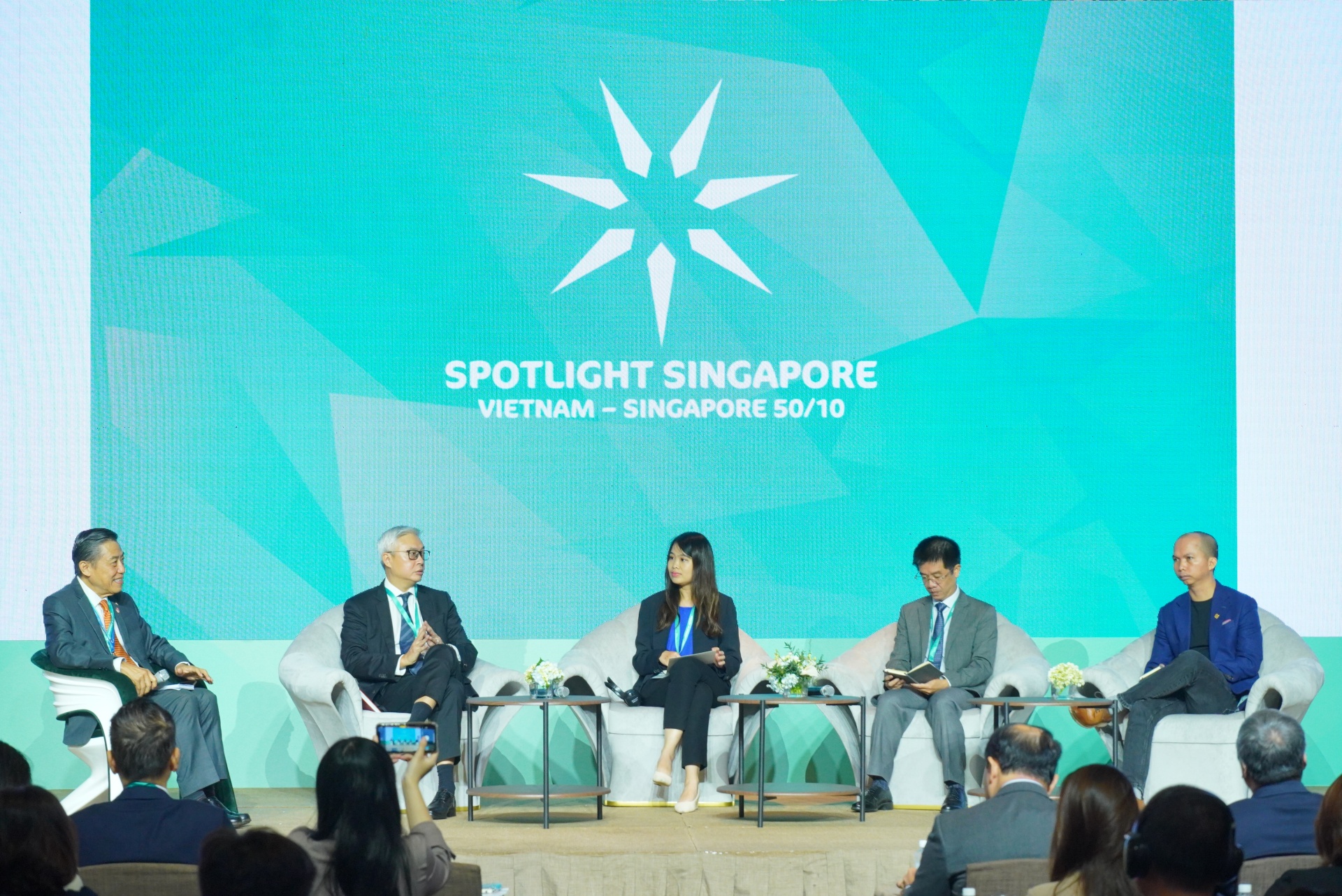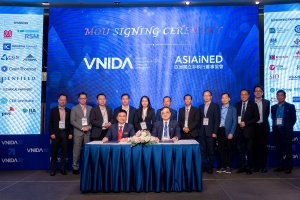Singapore-Vietnam Spotlight 2023: A focus on youth and entrepreneurship
 |
The event, a hallmark initiative of The RICE Company and supported by CFO Vietnam and VNIDA, took place on October 23 in Ho Chi Minh City.
The gathering of business leaders from both nations illuminated key approaches and the complexities involved in cultivating talent, while also adapting to the varied business landscapes of Vietnam and Singapore.
Marking 50 years of diplomatic ties and a decade of strategic partnership between Vietnam and Singapore, the event connected aspiring entrepreneurs and the youth of the two countries over a seven-day programme hosted in Hanoi and Ho Chi Minh City.
Amid the array of insights and experiences shared, a standout narrative was that of Esther Nguyen, founder and CEO of POPS Worldwide, a Southeast Asia's digital entertainment business, who conveyed her journey in overcoming cultural divides.
"As an American in Vietnam, I quickly learned the power of entrusting the local team; their intimate market understanding is irreplaceable," Nguyen emphasised.
 |
Stressing the significance of cultural sensitivity, Nguyen advocated for leveraging Singapore as a pivotal link, bridging the nuances of diverse markets. "Recognising and respecting these cultural distinctions is critical for success in each unique market," she said.
Alan Phua, CEO of Virtue Partners Management, shared insights into integrating local staff with international teams, highlighting the essential role of cultural diversity and inclusion in today's workforce. "We celebrate the differences. Evolution and diversification in our teams are crucial for leadership," he said.
This focus on blending global perspectives resonates strongly in discussions about managing talent, particularly in the rapidly evolving tech sectors. While concerns over a talent shortage linger, optimism shines through, thanks to Vietnam's burgeoning IT prowess and the rising calibre of its professionals.
Zac Chen, director of BoX Pte., Ltd., expressed admiration for Vietnam's young workforce. "Their communication skills, presentation style, and outward thinking are notably impressive. What really stands out is their adaptability," he said.
Chen also underlined that businesses in these regions are increasingly valuing local expertise while simultaneously staying receptive to global practices and ideas.
In the dynamic landscape of Southeast Asian startups, the fusion of intellectual property and local insights is shaping the next wave of market disruptors.
Mandy Nguyen, operations director of Startup Vietnam Foundation, believed that echoing the global influence of South Korea’s cultural content, Southeast Asia, particularly nations like Vietnam and Singapore, is on the verge of a similar breakthrough.
Furthermore, the pandemic also posed unique challenges and opportunities for startups. "Despite the challenges of travel restrictions and prevailing uncertainty, we witnessed a surge in creativity and a deeper trust within our startup community," Nguyen said.
She highlighted her own venture's success as an example of how adversity often sparks innovation, with her cabaret show flourishing, symbolising an era of unconventional triumphs in the startup landscape.
 |
In the realm of international cooperation, especially between Vietnam and Singapore, the focus is on bolstering startups through infrastructure and actionable synergies, crucial for enhanced collaboration.
Reflecting on the shift from 2007’s financial crisis to today, Phua of Virtue Partners Management, reminisced, "Back then, there were scarcely a handful of funds investing in Vietnam. Contrast that with today’s vibrant co-working spaces and prolific investors, the landscape for budding entrepreneurs has drastically transformed." They highlighted the significant increase in women entrepreneurs, indicating a broader, more inclusive startup environment.
Phua also pointed out that family offices and veteran investors are increasingly selective, prioritising startups with international exposure or partnerships. "In these volatile times, discernment in investment is paramount," he explained.
On the other hand, sustainability emerged as a non-negotiable in the future of business.
Nga Phuong Tran, CEO of Thien Long Group said, "The cost of integrating sustainability is substantial, but it’s a path we must tread for long-term viability and customer trust."
The role of technology and innovation in fostering a circular economy was another focal point. Tran highlighted initiatives by major brands to repurpose ocean plastics into footwear, exemplifying the shift towards responsible manufacturing.
"Innovation isn’t just a buzzword; it's crucial for making sustainability viable and impactful," Tran noted.
She also stressed that for sustainability to truly take root, it must evolve from being a 'nice-to-have' to a 'must-have' in business strategies, underscoring its growing relevance to consumers and investors alike.
 | VNIDA conference debates future of independent directors in Vietnam Nearly 250 experts from prominently listed, unlisted, and foreign-invested firms across Vietnam and the region converged at the July Independent Directors Forum, hosted by the Vietnam Independent Directors Association (VNIDA). The conference marked a significant milestone in Vietnam's corporate governance landscape. |
What the stars mean:
★ Poor ★ ★ Promising ★★★ Good ★★★★ Very good ★★★★★ Exceptional
Latest News
More News
- Foreign leaders extend congratulations to Party General Secretary To Lam (January 25, 2026 | 10:01)
- Russian President congratulates Vietnamese Party leader during phone talks (January 25, 2026 | 09:58)
- Worldwide congratulations underscore confidence in Vietnam’s 14th Party Congress (January 23, 2026 | 09:02)
- Political parties, organisations, int’l friends send congratulations to 14th National Party Congress (January 22, 2026 | 09:33)
- 14th National Party Congress: Japanese media highlight Vietnam’s growth targets (January 21, 2026 | 09:46)
- 14th National Party Congress: Driving force for Vietnam to continue renewal, innovation, breakthroughs (January 21, 2026 | 09:42)
- Vietnam remains spiritual support for progressive forces: Colombian party leader (January 21, 2026 | 08:00)
- Int'l media provides large coverage of 14th National Party Congress's first working day (January 20, 2026 | 09:09)
- Vietnamese firms win top honours at ASEAN Digital Awards (January 16, 2026 | 16:45)
- ASEAN Digital Ministers' Meeting opens in Hanoi (January 15, 2026 | 15:33)
















 Mobile Version
Mobile Version